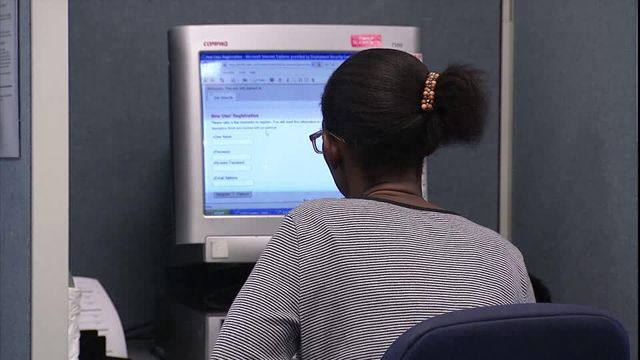Jobs are being created in health, technology, law enforcement
North Carolina's 10.4 unemployment rate is a staggering and sobering figure, but there are jobs out there.
Posted — UpdatedDeb Hadley, director of job placement and cooperative education at Wake Technical Community College, said Friday, "There are jobs, and they are all over the place."
Hadley points to the medical field, law enforcement and technology as growth industries.
Student Whitney Schlimme chose a health care course of study because she wants to help people, but she knows that choice will also help her land a job when she graduates in May.
"Right now I have tons of friends struggling to find a job," she said. "I will have a job for a long time."
Magnus Health, based in Durham, combines two of three growth fields. The company makes software that helps educational institutions manage medical records for their students.
Co-founder Chas Scarantino said he hired four employees in the past three weeks, increasing his staff by more than 25 percent.
"It's an exciting time for us," Scarantino said, noting that the company has grown from its first sale in February 2009 to now working with 900 schools.
The news is not so good for those in industries like construction or in government jobs. North Carolina's jobless rate is the highest it has been in more than a year.
The size of the state’s labor force also decreased by nearly 2,700, as more people dropped out of the work force and were no longer seeking employment.
The news is better in the Triangle than elsewhere in the state.
"Companies are hiring," said Rod Frankel, who owns a staffing company in Raleigh. "It is very difficult to compare the state unemployment numbers with what's going on here (in the Triangle). It's said over and over again that we live in a bubble, that we live in a vacuum, but it's entirely true."
Frankel said companies had been hiring temporary workers, but in the last six months, he's seen the number of direct hires increase.
"I think companies are now willing to spend some of that cash they may have been sitting on," he said.
• Credits
Copyright 2024 by Capitol Broadcasting Company. All rights reserved. This material may not be published, broadcast, rewritten or redistributed.






